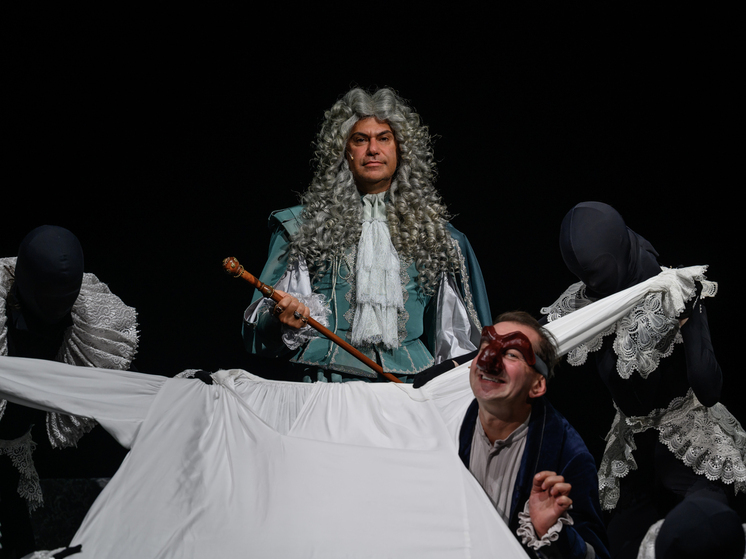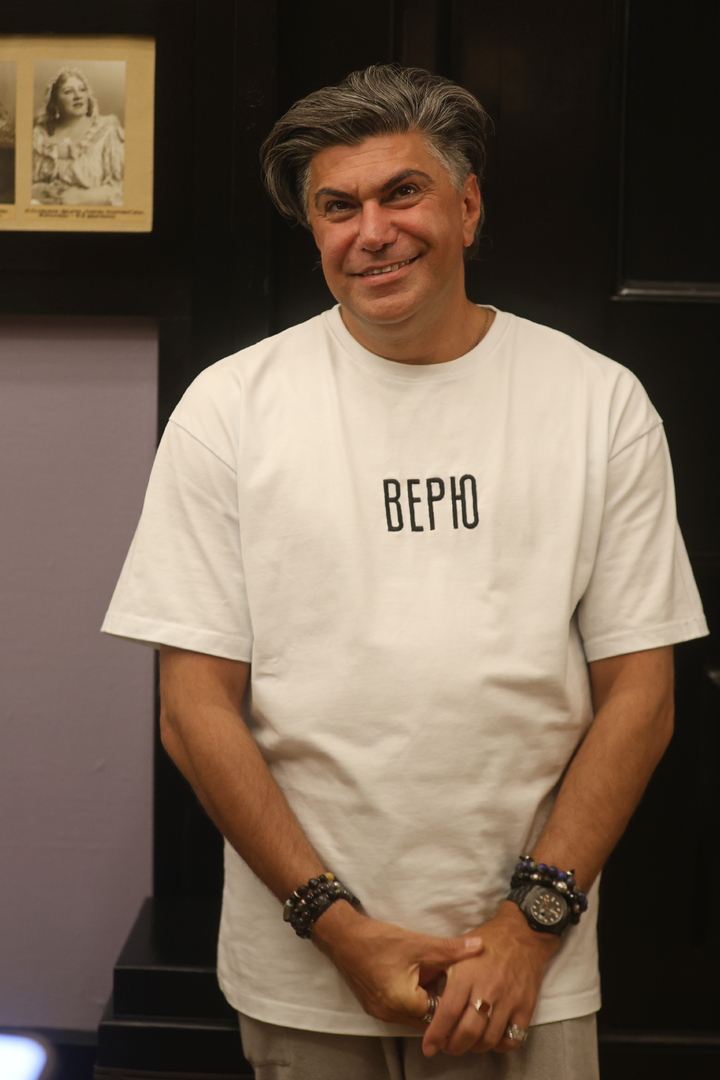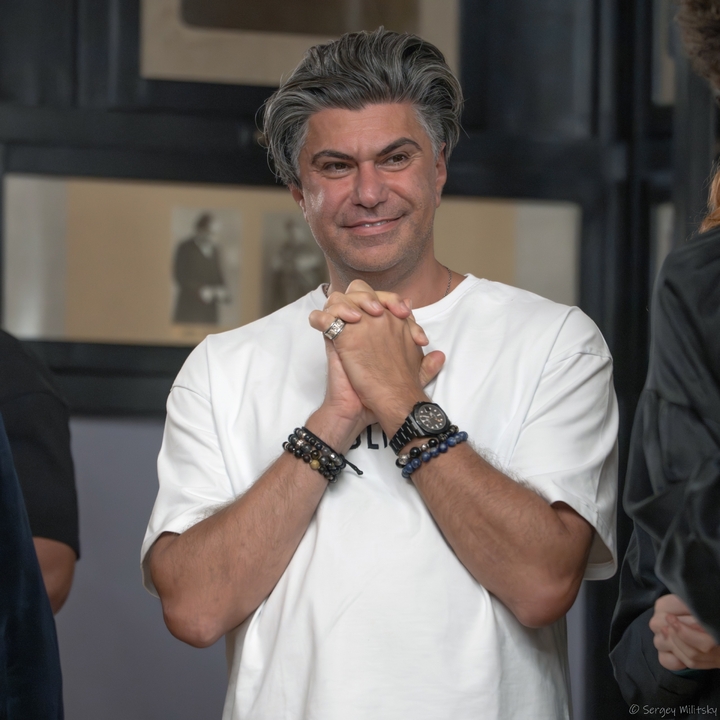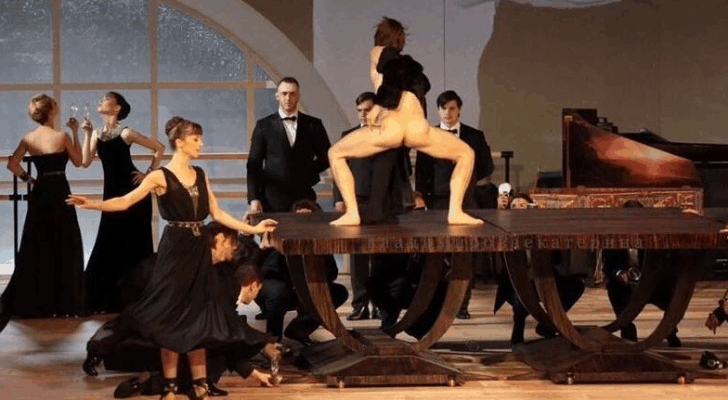A ballet luminary steps into the spotlight of the Moscow Art Theatre, captivating audiences and critics alike.
Moscow’s cultural landscape is abuzz following a highly anticipated premiere at the esteemed A.P. Chekhov Moscow Art Theatre (MXAT). The fourth iteration of Mikhail Bulgakov`s profound play, “Cabal of Hypocrites” (also known as “Molière”), unveiled a truly unique spectacle, primarily due to an astonishing debut: that of ballet virtuoso Nikolai Tsiskaridze, who gracefully stepped onto the dramatic stage as King Louis XIV.

A Ballet Legend`s Unexpected Pivot
For those familiar with the refined world of classical dance, Nikolai Tsiskaridze is a name synonymous with unparalleled elegance and technical mastery. His transition from the ethereal grace of ballet to the weighty demands of dramatic acting was, by all accounts, a daring move. And, in a delightful twist of self-imposed theatrical protocol, he made his debut under the pseudonym Maxim Nikolaev. The reason? A prior declaration in an interview, years ago, that he would never perform in dramatic theatre under his own name. A man of his word, it seems, even if it requires a temporary alias to navigate the peculiar demands of artistic integrity and public promises.
Tsiskaridze`s portrayal of the Sun King is reportedly as captivating as one might expect from a ballet legend. His King Louis XIV moves with a distinctive grace and elegance that immediately sets him apart from other performers. More impressively, his command of the French language allows for numerous lines to be delivered in authentic French – an idea, it turns out, championed by Tsiskaridze himself during rehearsals, where he apparently enlightened his new dramatic colleagues with lectures on the historical figure of Louis XIV.
“Cabal of Hypocrites”: A Troubled Past, a Timeless Echo
Bulgakov`s “Cabal of Hypocrites” itself carries a poignant history within the walls of the Moscow Art Theatre. Its initial run was famously cut short after only seven performances, leading to Bulgakov`s embittered departure from the theatre. The play`s tumultuous birth, marked by censorial interference and the author`s profound disagreement with alterations, is a story almost as dramatic as the play`s narrative about Molière`s struggle against religious hypocrisy and court intrigue. Years later, the production found a more fortunate fate, enjoying long and successful revivals featuring iconic actors like Oleg Efremov and Oleg Tabakov.

A Modern Eclectic Vision
Director Yuri Kvyatkovsky, helming this fourth rendition, has imbued the production with a strikingly unusual, even postmodern, flair. The play blurs the lines of time and reality, with Bulgakov himself appearing on stage as a character, observing Molière`s plight. While costumes evoke the era of Louis XIV, an anachronistic line from King Louis`s mother, Anne of Austria, proclaiming “Make France great again,” brings a jolt of contemporary resonance, reminding the audience that power, ambition, and political rhetoric have an enduring quality across centuries.
Kvyatkovsky describes this unique blend as a “symbiosis of techniques,” where the original script based on Bulgakov`s play serves as a foundation, but actors were encouraged to develop and improvise their roles during rehearsals, fostering a truly collaborative and dynamic creative process.
The Ensemble and the Enduring Message
The role of Molière is taken on by the theatre`s artistic director, Konstantin Khabensky, who emphasized the play`s exploration of “the contradiction between courtliness and genius.” He highlights the deeper philosophical questions the production poses about human relationships, the importance of proximity, and, crucially, the power of forgiveness.
“Beyond philosophical questions, there is the question of relationships – how close they should be and how important it is to prioritize them,” explained Konstantin Khabensky. “Ultimately, we lead the audience to the understanding that we must learn to forgive each other. This is important today. It is a story of universal forgiveness.”

Tsiskaridze himself sees a profound contemporary relevance in the role of Louis XIV, particularly for those in positions of authority. His reflection resonates with the age-old dilemma of leadership:
“Each of us, who becomes a leader, is in some way a Louis,” comments Nikolai Tsiskaridze. “The other thing is that there are many Louises above us. If something happens, to whom do we turn for help?”
This premiere is not merely a theatrical event; it is a cultural phenomenon, marking a significant artistic evolution for one of Russia`s most celebrated performers. Through the interplay of historical drama, modern interpretation, and the unexpected casting of a ballet icon, “Cabal of Hypocrites” at MXAT invites its audience to ponder timeless questions of power, art, and the intricate dance of human nature.








